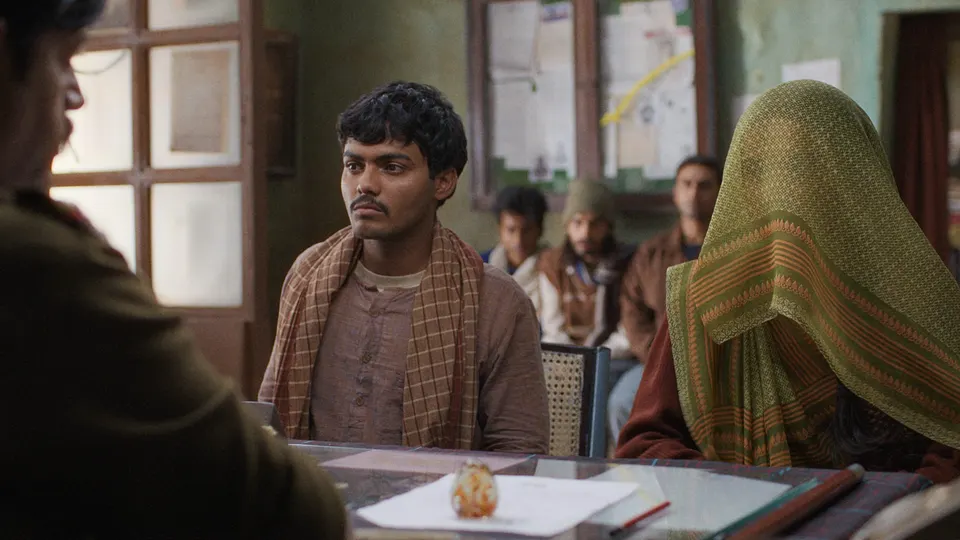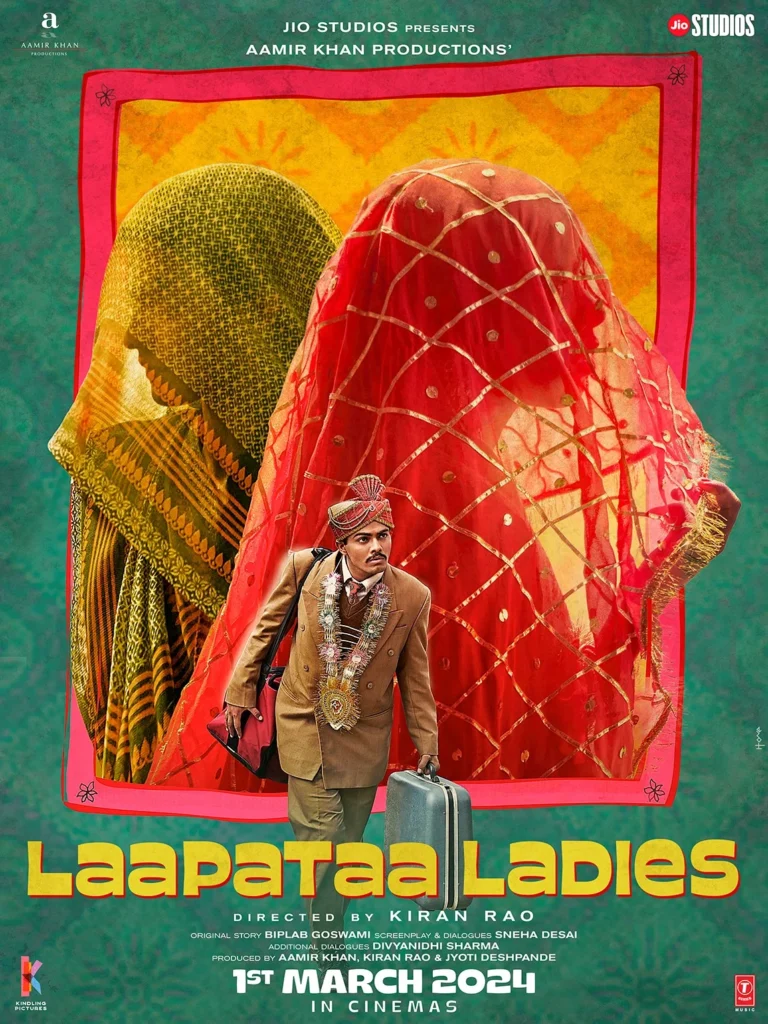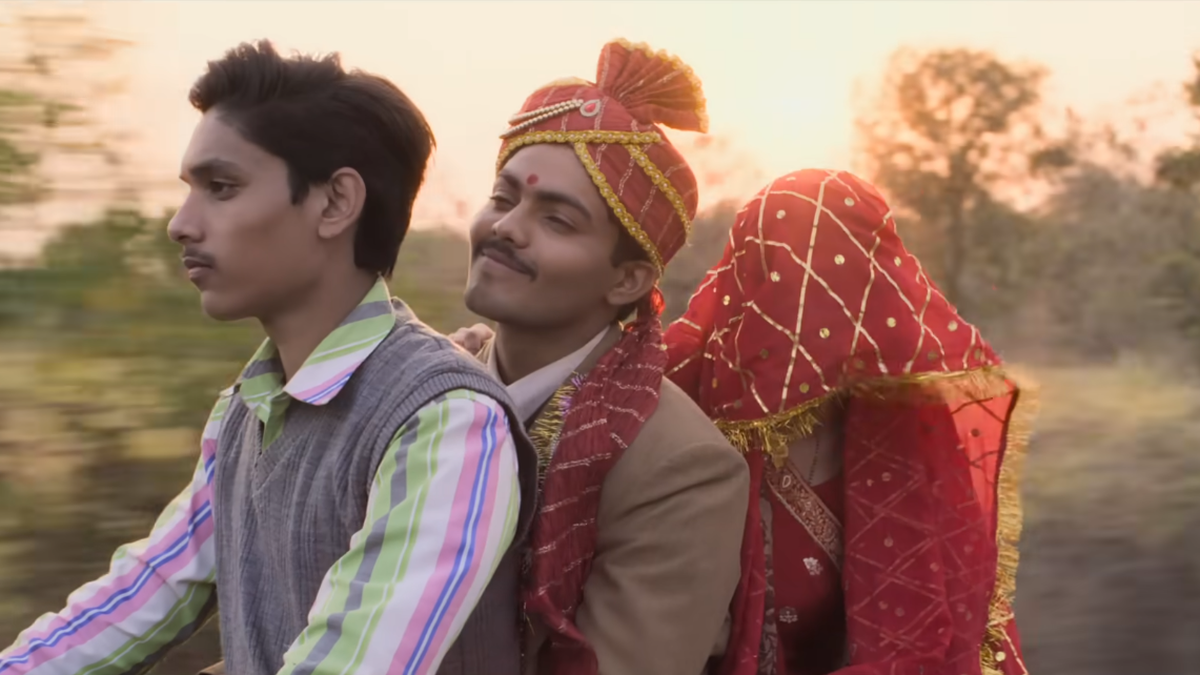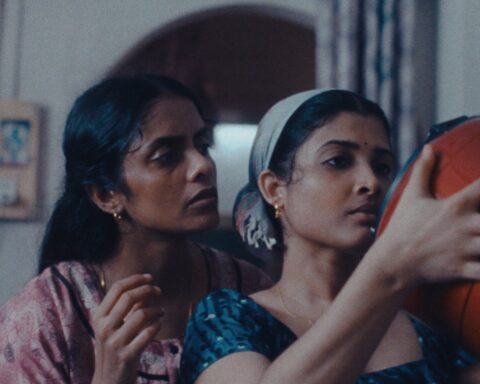Kiran Rao‘s sophomore Laapataa Ladies is a socially relevant tale that navigates the delicate balance between hope and despair, crafting an engaging narrative of fate and empowerment. Dealt with a sharp eye for humor and poignancy, the narrative sheds light on the stifling conditions of patriarchal values. The pivotal events in the film unfold like a series of comically absurd occurrences. But these moments appear plausible because there is a refreshing simplicity, eschewing heavy-handed exposition in favor of subtle exploration. With blistering clarity, the film tackles the underlying practice of age-old traditions, wherein the message within the dramedy of two women in distress never overpowers the overall progression of the story. Rao endows the characters of the film with a sincerity that is resonant in its tone. As they navigate their despairing journey, it reaffirms the value of their existence and the possibility of a life lived with dignity and self-respect without adhering to their patriarchal dictums. It also anchors their position in a society entangled with multiple prejudices and conservatisms—a world where the hope for change remains a distant yet attainable prospect. The film weaves themes of tradition and modernity with acumen, illustrating the strong sense of cultural identity that has an emotional afterglow.
The film is set in the fictional town of Nirmal Pradesh in 2001. Deepak (Sparsh Shrivastav), a young chap, marries Phool Kumari (Nitanshi Goel), a young girl who has been raised by her mother to excel in household chores diligently. As the newlyweds board the train to reach their destination, they find themselves in a compartment filled with other couples like them. In a quirky twist of destiny, Deepak mistakenly holds the arm of another woman in a veil, Pushpa (Pratibha Ranta), and alights from the train along with her. It’s upon reaching home that the blunder is revealed. Deepak runs to the station to retrieve his wife, while his family members are in utter shock. Phool, upon realizing that her husband is nowhere around, prefers to remain within the safe confines of the station. The next day, she comes across a platform tea and snack seller, Manju Mai (Chhaya Kadam), who asks if she remembers the name of her husband’s village. But Phool is unable to provide any information. Meanwhile, the only photo that Deepak has of Phool was clicked during their marriage, where she was under the veil. So, the corrupt and opportunist police officer Manohar (Ravi Kishan) could not help the troubled Deepak much. Meanwhile, Jaya takes advantage of the situation and concocts a plan.

Laapataa Ladies is full of sharp and clever connotations that poke fingers at the deeply ingrained thinking patterns of gender roles in our society. The veil that the women put over their heads is like a hegemonic canopy that inhibits them from making the choices they consider appropriate for their betterment. Phool realizes the importance of obtaining dignity and achieving one’ dignity in the openness of the railway platform. It is here that gets paid for her skillset in cooking and decides not to spend the rest of her life only as a homemaker. Pushpa on the other hand, is an educated woman who believes that talent is something that is like a blessing bestowed upon only a select few. As she encourages, Deepak’s sister-in-law Poonam (Rachna Gupta), to continue her talent in drawing, a close bond forms between them. This, in turn, prompts Deepak’s mother to ask her mother-in-law, if they could also be friends. Jaya also teaches Deepak’s father-in-law to use yellow sticky traps instead of hazardous fertilizers to kill pests attacking the crops. So, Pushpabecomes like a beacon of harmony and wisdom within the family.
Adapted from a story by Biplob Goswaami, the screenplay written by Sneha Desai, with additional dialogue from Divyanidhi Sharma, is bracingly engaging in its dramatic progression. The unforeseen situations, make-believe settings, and vulnerable characters possess a clarity of vision that is refreshing. But instances such as Manohaar watching out for every movement of Puspha as a suspect, the scene with the local MLA addressing the crowd, or the regular customer at Manju Mai’s stall gorging more chutney than the samosa lacks an organic appeal to elicit laughter. Some situations do not heighten the dramatic intensity of the film. In the two flashbacks, Deepak spends romantic moments with Phool, and Pushpa disclosing the reason behind her actions could have been integrated more effectively.

The beauty of Vikash Nowlakha‘s cinematography is not a stylistic exercise but reveals the humor and complexity of the situation. The framing of Laapataa Ladies creates a gentle atmosphere that is distinct and sensitive at the same time. Jabeen Merchant’s editing keeps the rhythm with parallel and simultaneous situations that make us traverse the characters seamlessly. Jabeen Merchant’s editing maintains a rhythm by juxtaposing parallel and simultaneous situations that allow us to seamlessly empathize with the characters. The production design by Vikram Singh provides the film with an accuracy that admirably complements the atmosphere and character with realism. Ayush Ahuja’s sound design balances the nuanced moments and dialogues of the film with a clarity that sustains our attention throughout.
Pratibha Ranta as Pushpa delivers her role with a perfect balance between sincerity and comical timing without letting her character become a victim of her circumstances. Sparsh Shrivastava, the befuddled husband of Deepak, has a clear restraint and control over his role that makes his character torn between the love of his wife and his intractable predicament. Nitanshi Goel as Phool efficaciously portrays a wide range of emotions that provide insight into a character who does not give up. Chhaya Kadam, with her effortless gestures, makes Manju Maai into a sharp-tongued and kind woman who has been taught multiple lessons by fate. Ravi Kishan plays the role of Shyam Manohar, a cop who does not hesitate to take bribes from people in trouble, with a comical and serious alacrity.
With Laapataa Ladies, Kiran Rao returns to the director’s after a gap of more than a decade. Though her debut, Dhobi Ghat (2010), failed to make significant waves, her second outing has a pleasant energy and a sensible touch that deeply cares for the characters on screen and compels us to reflect. Undoubtedly, this marks a commendable comeback.




